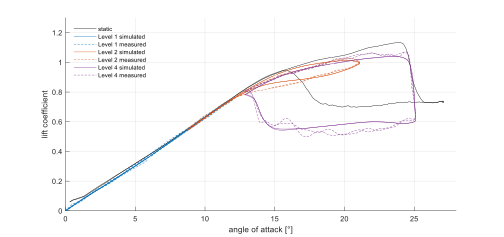
The goal of this project is to develop simple models of complex systems using data-driven modelling techniques.
In practice, everything in thermodynamics and fluid mechanics is to some extent unsteady, turbulent, and/or nonlinear. We have developed a strong expertise in using high-fidelity numerical and experimental techniques to study these complex phenomena. However, high-fidelity techniques are often too computationally expensive for crucial engineering applications such as control or optimisation. Presently, low-fidelity alternatives exist, but these are often too strongly simplified to include the relevant unsteadiness, nonlinearity or turbulent nature of thermal-fluid systems.
Therefore, we need simplified models that include the complexity (nonlinearity, turbulence, unsteadiness) that is required for the application, but that are still computationally fast enough.
The main strategic objective is to develop a methodology that allows the construction of such simplified models. This methodology will first be developed specifically for the thermal-fluid applications that are currently in our area of expertise. This will strengthen the collaborations and interactions within our team and create new interdisciplinary research opportunities in the strategically-important area of sustainable energy production.
